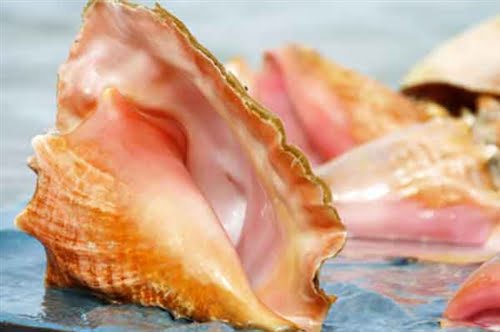NASSAU, BAHAMAS — Minister of Agriculture Michael Pintard advised yesterday that there will be a ban on the export of conch from The Bahamas by 2022.
Pintard made the announcement as he opened debate in Parliament on the Fisheries Bill, 2020.

He noted that the bill will not only provide for the protection of fish and other natural resources, but will seek to protect the scarce resources in the country and mitigate negative effects.
“We recognize that the conch is under threat and therefore it is important that we insist upon having conch landed in the shell and we’ve met with stakeholders and we intend to move forward with that…so that we are able to determine the maturity of the conch,” Pintard said.
“…We also signaled to the public, met with exporters and indicated that we are going to end the export of conch and we have over the last two years, going into the third year, gradually decreased the conch quota.
“By 2022, there will be zero exports of conch from the Commonwealth of The Bahamas and tourists can no longer harvest conch in Bahamian waters and consume.
“It will not be a part of the bag or marine resources that they are able to catch in Bahamians water.”
Pintard also said there will be a limit on the amount of resources sports fishermen coming into The Bahamas can catch, moving from a per-person limit to a per-vessel limit.
“So, those loopholes that people use to fill their coolers and deep freezers and sell, we are now closing those loopholes”.
There was widespread public debate about conch sustainability and its protection last year following a study that revealed a significant depletion of the queen conch population.
Chicago’s Shedd Aquarium, along with the group Community Conch, measured more than 3,000 conch at 42 survey sites throughout The Bahamas over an eight-year period (2009-2017).
 The survey, published in the scientific journal “Reviews in Fisheries and Science and Aquaculture”, determined the density of mature conch was far below the established minimum threshold for reproductive success, except in remote areas.
The survey, published in the scientific journal “Reviews in Fisheries and Science and Aquaculture”, determined the density of mature conch was far below the established minimum threshold for reproductive success, except in remote areas.
It was commissioned by Community Conch, with the lead authors being Community Conch scientists and data between 2016 and 2017 being provided by Dr Andy Kough of Chicago’s Shedd Aquarium.
The scientists recommended The Bahamas establish a size limit for legal harvesting based on a 15-millimeter shell lip thickness, end the export of queen conch from The Bahamas and enforce the landing and trade of conch in the shell to improve enforcement.
Data released by the Ministry of Agriculture and Marine Resources showed that $4.48 million or nearly 640,000 pounds of conch meat was exported from The Bahamas in 2018.
The royalties from the export amounted to $63,984, the data showed.
The data also showed that nearly 138,000 pounds of conch shells, valued at $29,810, were exported in 2018.
The royalties associated with the export of conch shells last year was $4,135.05.
The Bahamas National Trust has also continuously called for a ban on conch exports from The Bahamas.






